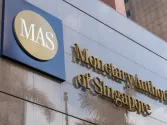
Moody's assesses Thai banks' resilience to crisis
Moody's will determine the appropriate systemic support for Thailand's bank ratings and the implications for 11 banks identified as being potentially affected.
The banks affected are Bangkok Bank, Bank of Ayudhya, Export-Import Bank of Thailand, Government Housing Bank, Kasikornbank, Krung Thai Bank, Siam City Bank, Siam Commercial Bank, Standard Chartered Bank Thailand, TMB Bank and United Overseas Bank Thailand.
All other bank ratings in Thailand are not impacted by the reassessment of the systemic support level.
Thai banking assets equal around 90 percent of GDP. Thailand's government debt, low relative to the country's GDP, is underpinned by the hardiness of the domestic banking and financial system, allowing the government a high degree of flexibility in extending support to the banking system through liquidity and capital assistance, as exemplified in the past. The banking system does not rely substantially on the supply of foreign currency to fund its operations.
The rating review has been prompted by the severity and longevity of the global economic crisis and the country's political turmoil – as reflected by Moody's negative credit outlook on the Thai banking system.
Factors that will be considered in its assessment of systemic support include the size of the banking system in relation to government resources, the level of stress in the banking system, the foreign currency obligations of the banking system relative to the government's own foreign exchange resources, and changes to the government's political patterns and priorities.
"The review of their debt and deposit ratings will look at the extent to which Thailand's ability to provide support to its banking system, if needed, is converging with the government's own debt capacity as a result of the ongoing global economic and credit crisis," said Karolyn Seet, a Moody's Assistant Vice President and Analyst.
"As such, Moody's will be reassessing the level of systemic support for the banks listed above to determine whether the systemic support they receive needs to be more closely aligned to the government's local currency bond rating," Seet added.






















 Advertise
Advertise








